Councillors will cost Fenland District Council thousands of pounds after the Government Planning Inspectorate allowed an appeal for 110 homes and accused the council of “unreasonable behaviour resulting in unnecessary or wasted expense”. The decision will delight planning officers at Fenland Hall who urged the planning committee last May to support the bid by Allison Homes for the new development at Upwell Road, March.
The planning committee can’t pretend they weren’t warned.
“The legal officer reminded members that if the application is refused the planning authority will be expected to substantiate the reasons for refusal,” notes the minutes from that meeting.

“And from what has been said by the planning officer he would struggle to know what planning reasons could be given for refusal that would stand on an appeal, for example the highway authority do not object and the committee does not have highways expertise.”
During the meeting – as reported at the time by CambsNews – planning officers told the committee they were “struggle to know what planning reasons could be given for refusal that would stand on an appeal”.
The council’s development manager David Rowen acknowledged that the site was not allocated in either the 2014 Local Plan or the March Neighbourhood Plan.
But he pointed out that both documents have policies regarding windfall development on the edge of towns and the edge of March in particular in the Neighbourhood Plan so from a principle point of view the adopted Local Plan and March Neighbourhood Plan would not resist the development of this site.
He referred to issues of drainage but the primary issue, he said, was that the statutory consultee does not raise any objection.
He said the highway authority were not raising any issues regarding safety implications of the development “and there has been robust consideration” between the case officer to check and double check that the comments were correct.
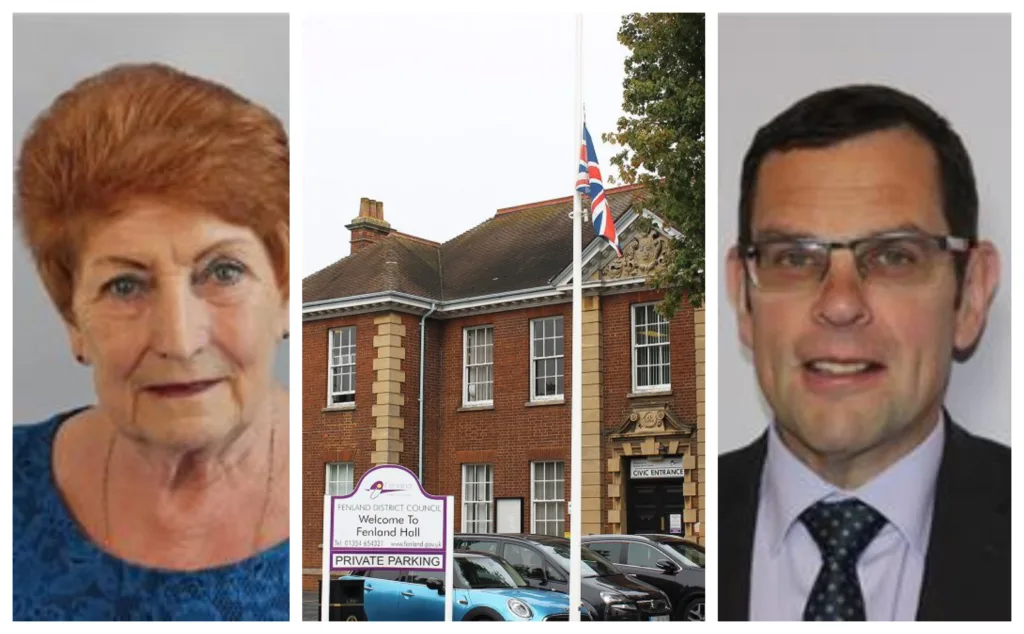
However, Cllr Jan French, a former chair of the planning committee and deputy council leader, weighed in heavily against the application and won unanimous support for it to be refused despite the warning of legal and planning consequences.
She said the March neighbourhood plan – established after a local referendum in 2017 – had not allocated housing sites on the outskirts of the town.
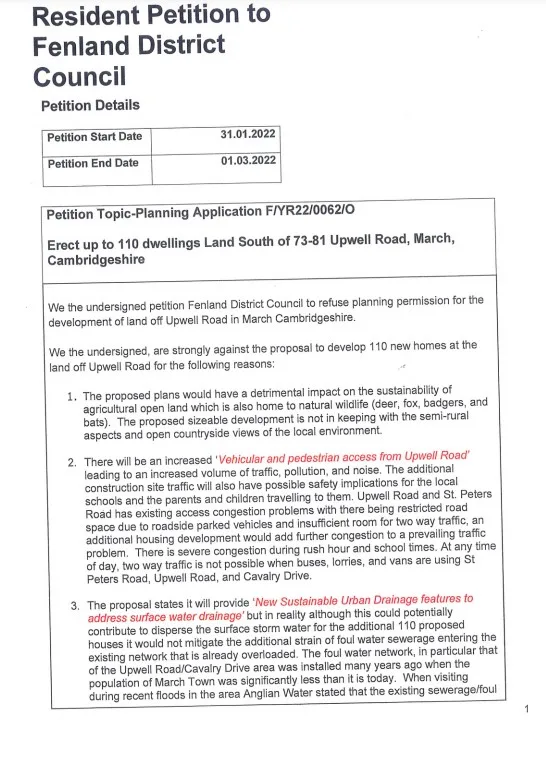
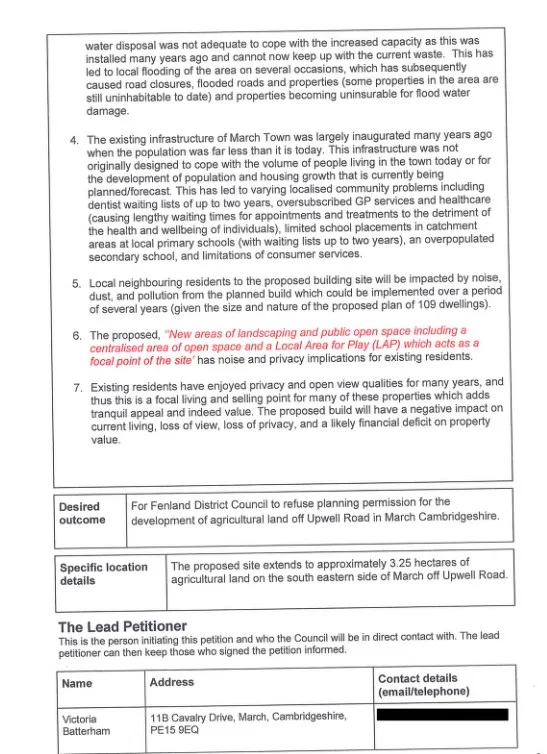
Cllr French described as “premature” the bid by the applicants who argued it was in the emerging Local Plan.
She said there were great problems regarding traffic and “we need to redesign the top of St Peters Road; it is awful”. The area could not cope with two hundred more residents in that area.
Cllr David Connor, the committee chair, also queried reports from the highways officers who had not seen an issue with the 110 homes and felt St Peters and other roads could cope.
“Everyone round this table can see that St Peters Road is not capable of extra traffic,” he said.
Cllr Connor felt highways officers must have “gone round there are midnight”.
“There are very few grounds on which the application could be refused and successfully defended at appeal,” one senior officer told the committee.
Now the council faces a massive legal bill – not simply picking up their own costs but also those incurred by Allison Homes.
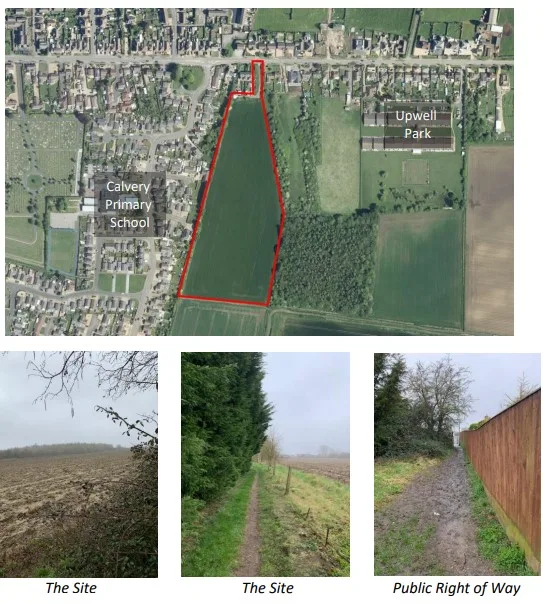
These will be a matter for discussion but when I suggested to one local experienced planning agent the bill could be as high as £5,000, he told me: “John, quite honestly I don’t think £5k will touch the sides”.
He said Fenland Council had employed consultants from Darlington to support them at appeal and said costs of travel, working on the appeal, travel, and paying the bill for both sides to prepare their respective cases could mean a “substantial settlement”.
The agent added: “The inspector inspected the site on the 12th of December on her own, the hearing clearly took at least a day and all who attended were invited to the site on the 14th.”
Tasmin Law, the inspector appointed by the Secretary of the State, announced her decision on the appeal and costs yesterday (Wednesday).
She explained that Planning Practice Guidance (PPG) means parties in planning appeals and other planning proceedings normally meet their own expenses.
“All parties are expected to behave reasonably to support an efficient and timely process,” she said.
“Where a party has behaved unreasonably, and this has directly caused another party to incur unnecessary or wasted expense in the appeals process, they may be subject to an award of costs. The aim of the costs regime, amongst other things, is to encourage all those involved in the appeal process to behave in a reasonable way and follow good practice.
“The PPG gives examples of unreasonable behaviour which may result in an award of costs against a council.
“A substantive award of costs may be made where (and the list is not exhaustive) the council has: prevented or delayed development which should clearly be permitted.”

She said this would take into account the council’s development plan, national policy “and any other material considerations and vague, generalised, or inaccurate assertions about a proposal’s impact, which are unsupported by any objective analysis.
“The application for costs asserts that the council failed to approve an application which complied with policy which caused the applicant unnecessary delay and wasted expense”.
She said: “Whilst the council is not duty bound to follow the advice of its professional officers if a different decision is reached the council must clearly demonstrate on planning grounds why a proposal is unacceptable and provide clear evidence to substantiate that reasoning.
Committee shrugs off legal challenge threat and rejects 110 homes
“In this case, the council’s planning officer concluded that that the proposed development complied with policy and recommended approval.”
The inspector said that at committee, members resolved to refuse the application as the site is not allocated for housing and therefore the principle of development is unacceptable due to the sites undesignated nature.
“No policies are quoted in the committee minutes or within the reason for refusal,” she said.
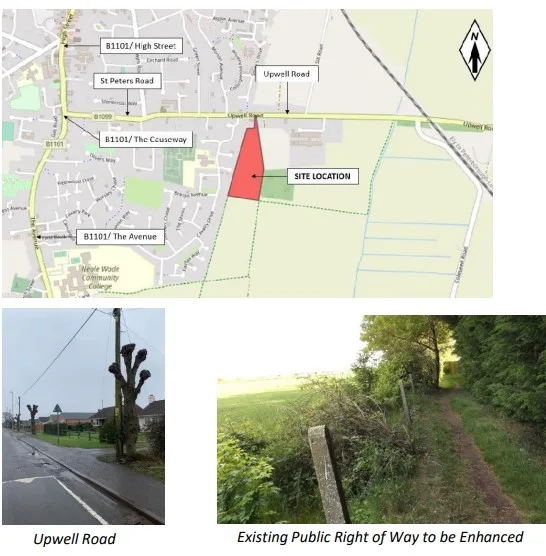
She said the council’s submission at the hearing confirmed that they considered the proposal did not comply with the Fenland Local Plan and the policy specifically to housing.
This dealt with ‘windfall sites’ of between 1 and 249 houses which have not been adopted in the Local Plan but still meet the criteria of small scale development, and permissible.
“It was the council’s view that due to the scale of the proposal combined its location behind existing dwellings it did not constitute small scale development,” she said.
“However, this view was only raised during the appeal process, with the reason for refusal making reference to the site not being allocated.
“I have found that based on the evidence before me that the proposal complied with policy.
“Additionally, there is no requirement, apart from developments of 250 dwellings or more, for housing to be located on allocated sites.
“In the planning judgement, it appears to me that having regard to the provisions of the development plan, national planning policy and other relevant considerations, the proposed development should reasonably have been permitted.”
And for this reason, “the refusal of planning permission therefore constitutes unreasonable behaviour contrary to the basic guidance in the National Planning Policy Framework (the Framework) and the PPG and the applicant has been faced with the unnecessary expense of lodging the appeal with regards to the first reason for refusal”.
110 homes are 110 too many for this site Fenland Council told
Allison Homes can now submit to Fenland District Council details of these costs “with a view to reaching agreement as the amount”.
Ms Law said the main issue was whether or not the appeal site would be a suitable location for housing.
The site is on the south of Upwell Road and to the east of Cavalry Drive and consists of open agricultural land.
She said one of the council’s concerns, raised at the hearing, was the amount of housing being delivered on windfall sites undermining the delivery of housing allocations.
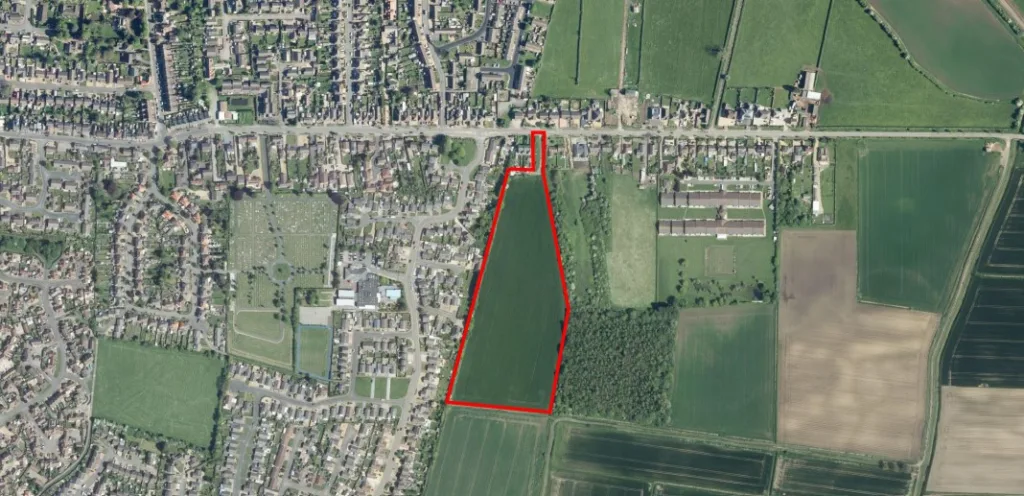
“In relation to the council’s concerns regarding windfall delivery, whilst allocations are in place, the evidence before me details that in the years between 2011/2012 and 2020/2021 only 434 dwellings have been provided on the allocated sites out of a total provision of 3,906 dwellings, with the remaining and majority coming from windfall sites,” she said.
“Despite the evidence detailing that windfall sites have been more favoured by developers, the council has not produced any evidence that allocations are not being delivered as a result of the large amount of windfall sites being approved, nor that they will be prevented from doing so over the remainder of the plan period.
“Indeed, the council highlighted at the hearing that there have been recent applications on allocated sites in March. As such, I cannot conclude that the proposal would undermine the delivery of allocated sites.”
The inspector said 110 homes on Upwell Road site would be “small scale” and therefore comply with council policy that ensures new houses are provided within or on the edge of market towns or on housing allocations.
She also felt the new homes would not have a harmful impact on pedestrian and highway safety.
The inspector said she had heard that residents were fearful that appointments are limited at local surgeries and there are waiting lists at local schools.
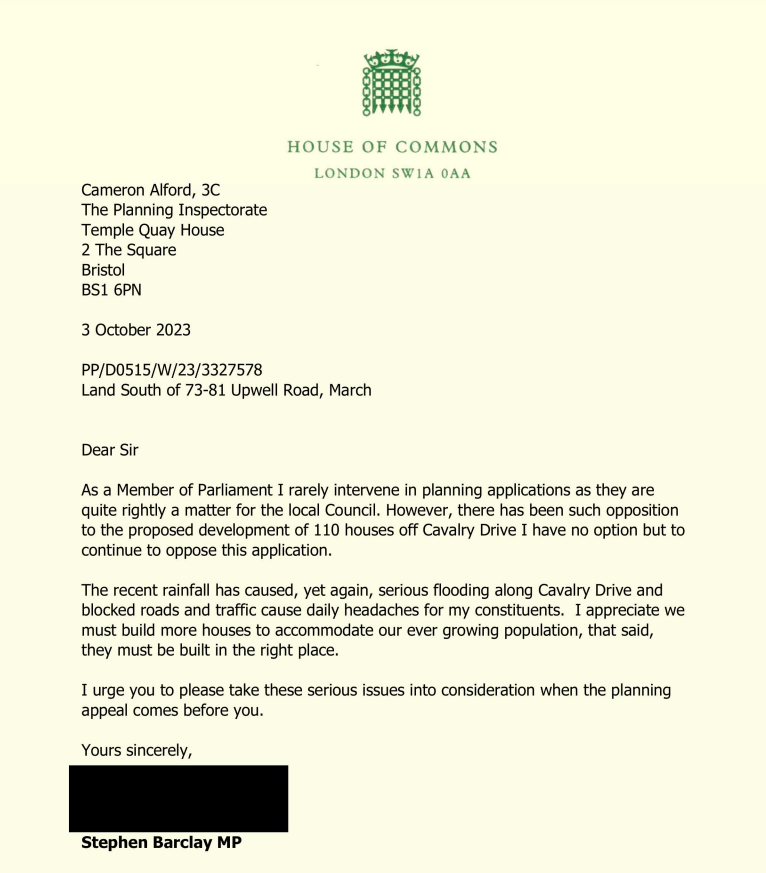
“However, I have not been provided with any substantive evidence to demonstrate that local GP provision is in such an undersupply that the financial contribution requested, secured by the S106, would not mitigate the proposal and aid in improvements to the service,” she said.
“Similarly, I have not been provided with any substantive evidence regarding school places and no contribution has been requested.
“Local residents have raised concerns regarding the potential for the proposal to increase surface water and associated flooding to neighbouring properties.
“It is noted that submissions from interested parties’ detail that nearby properties suffer from flooding. The response from the Middle Level Commissioners note that this is largely related to surface water sources and the failure to maintain watercourses.”
The inspector felt Allison Homes would ensure drainage was not an issue and “I am also mindful that the Lead Local Flood Authority is satisfied with the details provided within the submitted evidence”.
The inspector added: “Regarding the living conditions of future occupiers with regards to noise and air pollution, the proposal is supported by an air quality screening assessment and rapid health impact assessment.
“Additionally, I have had regard to consultation responses from environmental health who consider that subject to mitigation, which will be conditioned, there would be no adverse impacts on nearby residents.
“In light of the submitted evidence, and in the absence of anything sufficiently compelling to the contrary, the proposal would not have a harmful effect on the living conditions of future occupiers.”
She added: “With regards to a condition limiting the number of dwellings at the site. “While the illustrative plans show that 110 can be successfully accommodated, there is no robust evidence that this is a maximum that could be compatible with the area.
“The layout, including any necessary open space will be assessed as part of any reserved matters application. As such, the need for the condition has not been demonstrated, so I have not imposed it.”
She said: “The appeal scheme would accord with the development plan and there are no material considerations worthy of sufficient weight that would indicate a decision otherwise.”.



























